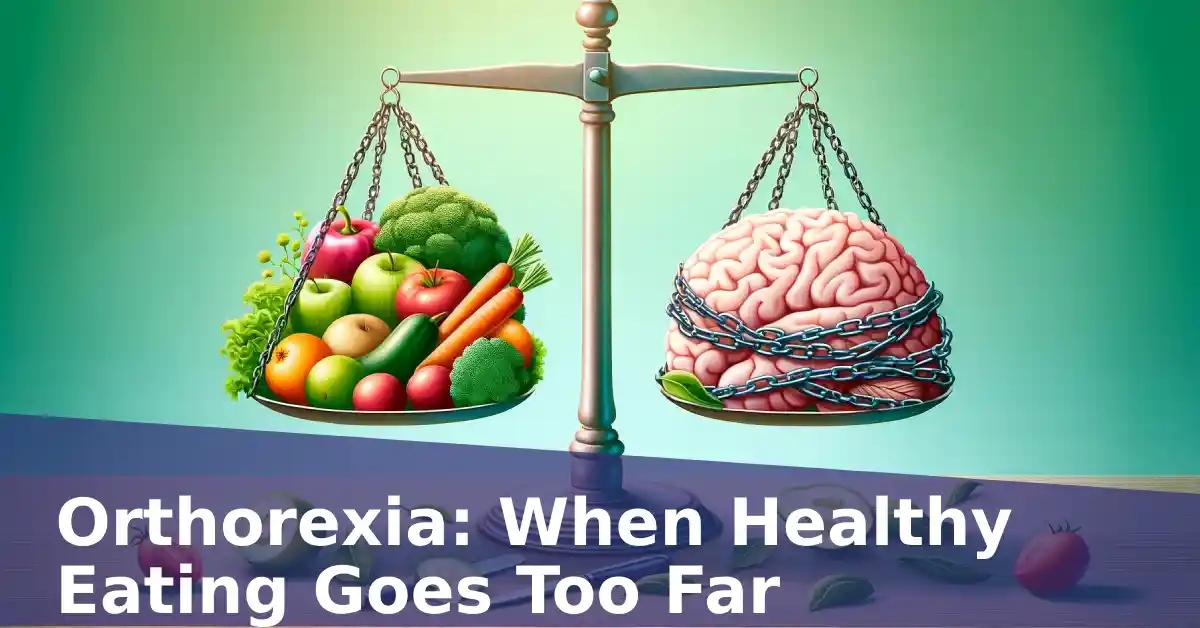Orthorexia: When Healthy Eating Becomes Obsessive
Have you heard of orthorexia? It refers to when people become so preoccupied with eating “pure” or “perfect” food that it begins to damage their health.
Dr. Steven Bratman first described food quality concerns in 1997. They differ from other eating issues because rather than worrying too much about quantity of intake, they involve worrying too much about quality.
What Is Orthorexia? Orthorexia begins as an attempt at eating healthily but quickly devolves into an unhealthy obsession of only eating organic, unprocessed and “clean” food sources.
Orthorexia goes beyond simply knowing the ingredients of food; it can lead to lacking essential vitamins and nutrients, feeling lonely and experiencing mental health challenges.
Dieting shouldn’t lead to such results.
Real Stories Illustrate Orthorexia’s Impact Our review includes real stories that demonstrate orthorexia’s harmful impact.
One such case involved a 28-year-old woman whose strict vegetarian diet, adopted initially for health purposes, led her down a path toward severe malnutrition and social isolation.
These narratives reflect experiences shared by some of our readers, emphasizing the thin line between healthy eating and unhealthy obsession.
How Common is Orthorexia? Studies from literature reviews reveal varying prevalence rates for orthorexia ranging from as little as 6% in some groups to an astonishing 88% among certain professionals like nutritionists.
These figures illustrate that orthorexia is becoming an increasing concern, particularly among those dedicated to health.
Orthorexia is more prevalent than previously anticipated, thus warranting increased understanding and recognition of this condition.
As literature illustrates, it can be easy to cross over from being Health Conscious to Orthorexia without realizing it.
Jordan Younger is an example of someone whose blog exposes how social media influences can exacerbate orthorexia and lead to unhealthy obsession.
Finding and Treating Orthorexia
If someone is particularly strict with their diet, becomes upset when they can’t consume certain foods and is preoccupied by food issues, they could be suffering from orthorexia. To identify and help someone experiencing orthorexia.
Literature review can assist with recognizing signs of orthorexia, including extreme diet rigidity, distress over food choices and an overall feeling of superiority with their diet. Dieticians and therapists with expertise in cognitive-behavioral therapy (CBT) may be essential in providing assistance for individuals suffering from orthorexia.
Assistance from nutrition specialists and therapists can be essential in understanding why someone feels this way about food and providing guidance on how to improve.
Conclusion: Balance Is Key
Finding balance is of utmost importance in reaching optimal health. Being healthy doesn’t just involve what we eat; rather, being happy means not letting food take control over your life.
Orthorexia serves as a reminder that while health should always come first, this pursuit must not come at the cost of overall happiness and quality of life.
Orthorexia serves as a stark reminder that excesses of any good can become harmful. We require further study in order to gain a greater understanding of orthorexia and help individuals find a balance when it comes to food choices.
